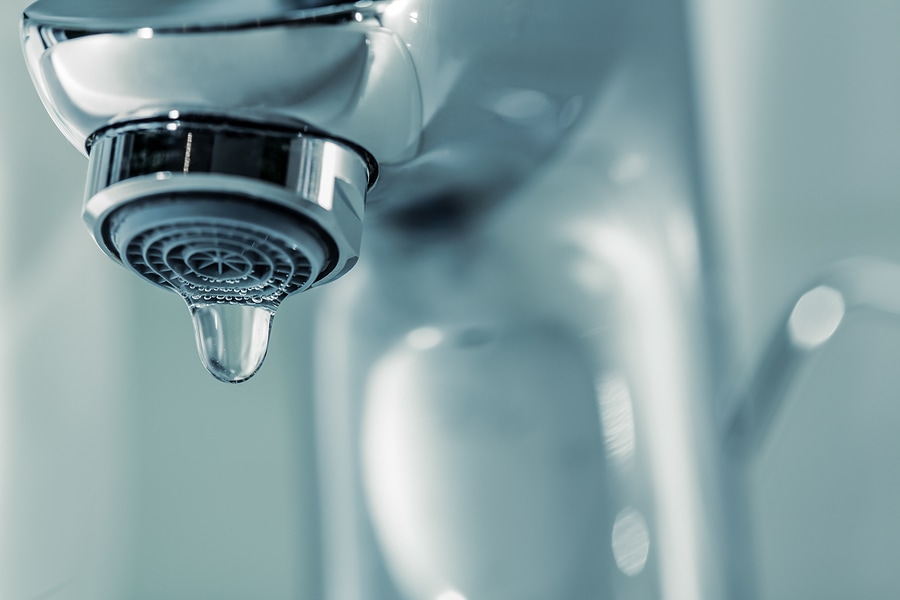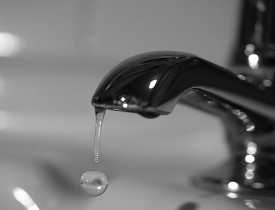Which It's Crucial to Rectify a Malfunctioning Faucet
Which It's Crucial to Rectify a Malfunctioning Faucet
Blog Article
What are your ideas about Should I Repair or Replace a Leaky Faucet??

Trickling taps could seem like a small inconvenience, but their impact surpasses simply the aggravation of the sound. From wasting water to sustaining unnecessary financial costs and health threats, overlooking a leaking faucet can lead to numerous effects. In this post, we'll delve into why it's critical to address this usual family concern quickly and successfully.
Waste of Water
Ecological Effect
Trickling faucets add considerably to water waste. According to the Environmental Protection Agency (EPA), a single faucet trickling at one drip per secondly can waste greater than 3,000 gallons of water per year. This not only pressures water resources however additionally impacts environments and wildlife depending on them.
Financial Costs
Raised Water Costs
Beyond the ecological influence, leaking faucets can inflate water expenses significantly. The gathered wastage over time translates right into greater energy costs, which might have been avoided with prompt repair services.
Prospective Residential Property Damages
Additionally, prolonged leaking can cause harm to components and surface areas bordering the tap. Water build-up can cause discoloration, deterioration, and even architectural concerns if left ignored, resulting in added repair prices.
Health and wellness Concerns
Mold And Mildew and Mildew Growth
The continuous visibility of wetness from a dripping tap produces an optimal environment for mold and mildew and mildew development. These fungi not just jeopardize interior air top quality but likewise posture health dangers, specifically for people with respiratory conditions or allergies.
Waterborne Illness
Stationary water in trickling taps can come to be a breeding ground for bacteria and other microorganisms, boosting the threat of waterborne conditions. Impurities such as Legionella microorganisms flourish in stagnant water, possibly resulting in severe diseases when consumed or inhaled.
Do it yourself vs. Professional Fixing
Advantages and disadvantages of DIY Repair Service
While some may try to fix a trickling tap themselves, DIY repair work include their very own collection of difficulties. Without appropriate understanding and devices, DIY attempts can intensify the issue or result in incomplete repairs, lengthening the issue.
Benefits of Employing a Specialist Plumber
Working with a professional plumber makes certain that the underlying cause of the dripping faucet is dealt with efficiently. Plumbing technicians possess the competence and tools to diagnose and repair faucet problems effectively, conserving time and decreasing the threat of more damages.
Step-by-Step Overview to Taking Care Of a Dripping Tap
Devices Called for
Before attempting to fix a dripping faucet, gather the necessary tools, including an adjustable wrench, screwdrivers, substitute parts (such as washing machines or cartridges), and plumber's tape.
Typical Faucet Issues and Their Solutions
Determine the kind of faucet and the particular problem triggering the drip. Common problems include worn-out washers, rusty shutoff seats, or damaged O-rings. Refer to producer instructions or online tutorials for step-by-step guidance on repairs.
Preventive Measures
Routine Maintenance Tips
To stop trickling faucets, perform regular upkeep such as cleansing aerators, inspecting for leaks, and changing damaged parts promptly. Furthermore, take into consideration installing water-saving tools or upgrading to more reliable components.
Relevance of Prompt Repairs
Attending to trickling taps as quickly as they're discovered stops further water wastage and possible damages, ultimately conserving both water and cash in the long run.
Influence On Property Worth
Understanding of Well-Maintained Residential Or Commercial Property
Keeping a property in good condition, consisting of dealing with maintenance issues like leaking taps, improves its regarded value and desirability amongst potential customers or occupants.
Impact on Resale Value
Characteristics with properly maintained plumbing fixtures, consisting of taps, command greater resale worths in the real estate market. Attending to dripping faucets can add to a positive perception throughout residential property inspections and settlements.
Ecological Responsibility
Private Payment to Conservation
Taking obligation for dealing with dripping faucets straightens with broader efforts towards water preservation and environmental sustainability. Every individual's activities jointly make a significant effect on protecting priceless resources.
Sustainable Living Practices
By prioritizing prompt repair services and taking on water-saving habits, individuals contribute to lasting living techniques that profit both present and future generations.
Conclusion
Attending to a leaking tap surpasses mere ease; it's an important step toward saving water, lowering economic costs, and safeguarding health and wellness and residential property. Whether via do it yourself fixings or professional assistance, doing something about it to deal with dripping taps is a small yet impactful means to advertise liable stewardship of sources and add to a much healthier, extra lasting future.
How to Fix a Leaky Faucet: Step-by-Step Repair Guide
A leaky faucet may seem like a simple annoyance, but if it's not fixed promptly, that leak could cost hundreds to potentially thousands. From water damage to mold, mildew, and high water bills, even a tiny leak can be catastrophic if left unattended. Damage like this can even affect the overall value of your home, so it's important to take the right approach for leaky faucet repair. You may need the help of a plumber in some cases, but we've got a few tips you can try on how to fix a leaky faucet before calling the pros.
Four Faucet Types
When you're learning how to fix a leaky faucet, the first step is knowing what kind of faucet you're working with! There are four common types.
Cartridge Faucets
Cartridge faucets come in one- or two-handled varieties. In one-handled cartridge faucets, hot and cold water combines in a single cartridge. In the two-handled versions, hot and cold water are controlled separately and mixed in the faucet.
Ball Faucets
Ball faucets have a single lever you push up and down to adjust the pressure and rotate to change the temperature. A slotted metal ball controls the amount of water allowed into the spout.
Compression Washer Faucets
They're the oldest type of faucet, but they're still used in many homes — especially older ones. Compression faucets have two separate handles that, when turned, raise or lower the washer that seals a water valve. This valve stops water from flowing through the faucet when it is turned off.
Disc Faucets
Disc faucets rarely need to be repaired due to their maintenance-free design. The water flow is controlled by two discs — the upper one raises and lowers against a fixed lower disc, creating a watertight seal. If your disc faucet starts leaking, you may need to replace the seals or clean residue buildup from the inlets.
Fixing a Leaky Faucet
Step 1: Turn Off the Water
Whether you're learning how to fix a leaky bathtub faucet or how to fix a leaky kitchen faucet, always turn off the water supply to your working area when you're fixing a leak. The last thing you want is a flood added to your list of things to fix.
Look for the shutoff valves below your sink or around the tub and turn them clockwise to stop the water flow. If your faucet doesn't have shutoff valves, you may need to turn off the water for the whole house. Check to make sure it's off by turning the faucet on. If nothing comes out, you're ready to start the repair.
Step 2: Take Apart the Faucet
How you disassemble your faucet depends on the type of fixture you have. You can use a flathead screwdriver to remove the caps on top of the handle or handles for cartridge and compression faucets. Inside, you should see handle screws. Unscrew these with a screwdriver to remove the handle.
Disc- and ball-style faucets will typically have an inlet screw near the handle, and removing that will reveal the interior of the faucet.
Detach the Valve Stem
For cartridge- and compression-style faucets, you'll see the inner valve stem or cartridge once you remove the faucet handles. If you have a compression faucet, unscrew the brass valve stem. If you have a cartridge faucet, pull out the cartridge. If your cartridge has been in place for a while, it may require some tools or extra force to remove it due to mineral deposits.
Examine and Replace Parts
Once you've removed the parts, check them out to confirm what needs to be replaced. You may see corroded rubber washers, O-rings, stems, or cartridges. On a ball-style faucet, check the seats and springs for damage.
If you need to repair a leaky disc faucet, check the inlet and seals on the lower disc.
Once you determine what parts must be replaced, visit your local hardware store. Bring the damaged parts with you to ensure you can purchase the correct components to replace them.
Clean Valves and Faucet Cavity
If you've removed a stem or cartridge, you may notice mineral buildup in the faucet's threads. Use white vinegar to clean the valve seat by soaking it for a few minutes, then scrub it away with a soft toothbrush and rinse with warm water. You can also clean the interior of the faucet in the same way.
Reassemble the Faucet
Once your faucet is cleaned and the required parts have been replaced, it's time to reassemble it. Put the pieces back together and slowly turn the water supply back on. Doing this slowly is crucial because too much initial water pressure can damage the new hardware you've just installed.
https://homewarranty.firstam.com/blog/how-to-fix-leaky-faucet

As a person who reads on Water Dripping from Faucet: Why and How to Fix, I figured sharing that topic was a great idea. Loved our piece of writing? Please quickly share it. Help someone else discover it. I praise you for being here. Kindly come visit our blog back soon.
Report this page